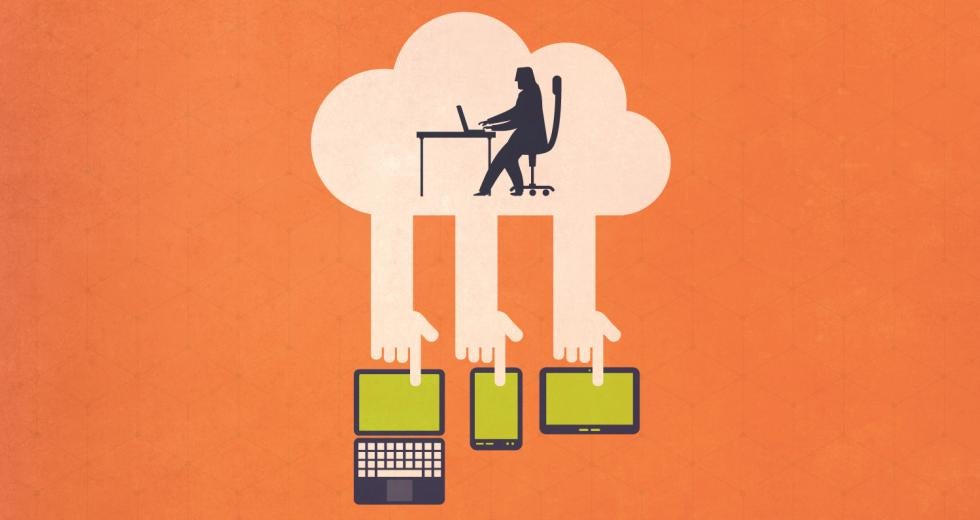You hear a knock at the door. Whether you open it may depend on several factors. Are you expecting company? Can you can see their face through the peephole? Do you recognize them? And are you willing to provide them a list of virtually everybody you’ve ever worked with, where they work now, what their current titles are and all their associates, too?
So it goes with LinkedIn connection requests that frequently come from people you’ve never worked with or even met. Some people see these requests as easy, low-commitment handshakes that might possibly lead to opportunity someday. Others regard them as tacky, intrusive and suspicious. Whatever your gut-level reaction is, it’s useful to take a step back and look at the real-world pros and cons of connecting with strangers.
Unexpected Strengths
In 1973, sociologist Mark Granovetter published a paper called “The Strength of Weak Ties.” It would go on to have tremendous influence in many fields, including marketing, information science and politics. He argued it is the people with whom we are the least connected who offer us the most opportunities. Even a weak tie to a well-connected person in a remote network offers indirect access to people otherwise inaccessible.
Today, social media is testing that supposition in interesting new ways.
While LinkedIn explicitly recommends you accept invitations only from people you know, it also implicitly encourages casual networking by showing you everyone up to three “degrees of separation” from your own circle. And on the face of it, it’s hard to ignore the potential benefits. People in the 500+ club appear well connected, which is an asset all by itself. They reach a wider audience when they communicate. They are more easily found in others’ searches. When it comes time to look for a new job or sales lead, they may discover opportunities more insular counterparts might have missed. If they’re in a small city, they may find it easier to bridge geographic boundaries.
With all of those potential upsides, why should an ambitious person ever be more selective in their association? Because being indiscriminate with your connections can have consequences, too.
Stranger Danger
First, when you accept a connection with someone, you are extending them implied credit through association. If they turn out to be a horrible person and start hitting up your inner circle for jobs or sales, that would get awkward fast. Or imagine how embarrassing it would be to have a trusted associate ask for an introduction to someone you’ve never actually met.
In fact, that stranger could also be a spammer or a scammer. And accepting their connection request gives them an awful lot of information to work with.
Intel Security recently revealed that in a survey of 2,000 UK-based respondents, more than one in five workers admitted to accepting LinkedIn connection requests from people they don’t know. At the same time, internet security experts across the country are observing an increase in fake LinkedIn accounts, many originating from countries such as Iran and Russia, being used to assume other people’s identities and then attempting to make connections with increasingly senior people inside their workplaces.
Fraudsters can use such information to predict who trusts whom in an organization, identify executives, impersonate them, and phish for further access to key individuals or sensitive information. In May of this year, a hacker group successfully posed as the CEO of an Austrian aerospace parts manufacturer and used his company email to request a massive money transfer for a fake acquisition. It cost the CEO his job and it cost the company $56 million.
Practicing Safe Accepts
Needless to say, it pays to be a little paranoid. Many people play it safe and altogether ignore requests from strangers who don’t include a personalized note. It’s also a simple precaution to respond with a follow-up question such as, “Hi, thank you for the invitation to connect on LinkedIn. How did you find me?” If they can’t or won’t answer the question, then it’s case closed.
If you decide you want to unlock the power of weak ties and send connection requests to strangers or friends of friends of friends, do it right. Include a personalized note, such as, “Hi, you probably don’t remember me, but we talked at a conference in May and you gave me your card.” That proves you’re not a spambot or malware installer — and it shows that civility is not yet completely dead.
Ultimately, your inclination to accept, decline or invite strangers to your network is a personal judgment call, and it likely reflects on whether your success relies more on wide-open market access or personal reputation and company security. Whatever you choose, it’s best to be clear-eyed about the risks and benefits.
Now go update your profile and start networking!




Comments
This article was amazing. It has helped me with an argumentative essay I have been struggling on. As to what I was saying this article is amazing! But I do need some more info about the author. Was this article medically reviewed? If so by who. This is vital information I would've liked for you to put in the beginning or end of the article. If you may please comment this information or if you can, comment on this comment. Thank you, once again for this very helpful article.